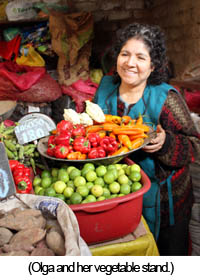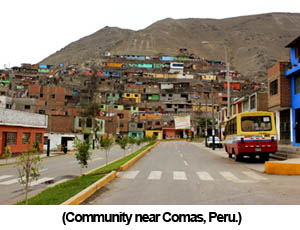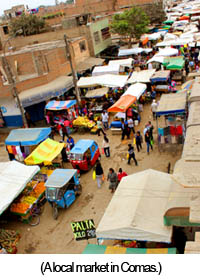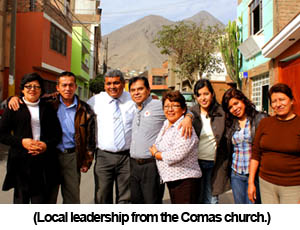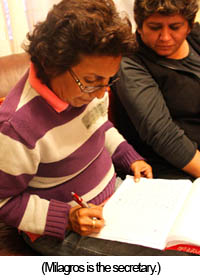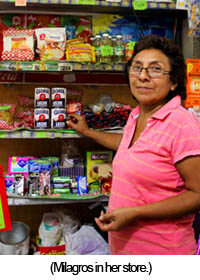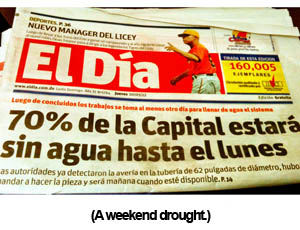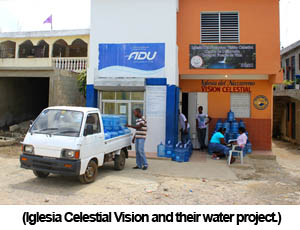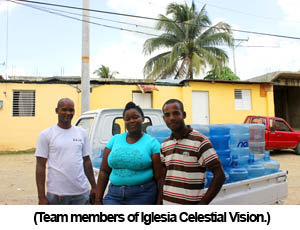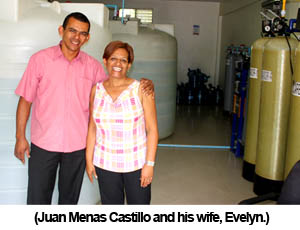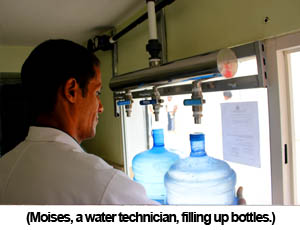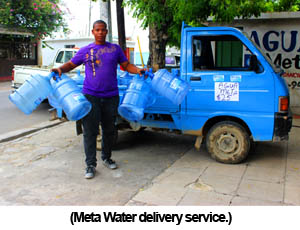
![]()
Aaron Roth – Edify.org – “To Give What You Never Had“ – Feb. 2013
Hi family and friends, after almost seven weeks in Nicaragua, I headed up to Guatemala to be a part of a teachers conference organized by International School Project (www.isptrips.org). As part of my position, I’ve been participating in the conference to see how they teach a morals and ethics curriculum based on the Bible to about 500 Guatemalan public school teachers and directors. After this, I will head to Honduras, to continue visiting Christian schools. It’s been a wonderful journey thus far, and part of me thinks I’m just getting started. This email is about an experience I had in a school in Leon, Nicaragua. Blessings, -Aaron
- Download this email as a pdf: Aaron Roth – Feb. 2013 Update.pdf
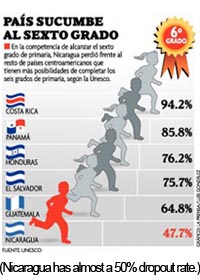 Edify worldwide – www.Edify.org
Edify worldwide – www.Edify.org - Archive: AaronRoth.net – Monthly Newsletters
Have you met someone recently that couldn’t read or write? I suppose if you hang out with small children, they get a pass, but I’m asking this question in relation to adults. When was the last time you met someone who was illiterate? It’s probably fairly uncommon for us Americans to run across anyone that has difficulties like that unless we work in education.
Working out of Managua, Nicaragua I have visited many communities where I meet adults that still cannot read and write. It’s quite common in the rural areas actually. In fact, the Nicaraguan government has a campaign called, “The Battle for Sixth Grade” which helps rural schools to keep children in education until at least the sixth grade and hopefully into high school. Apparently, in many rural communities, the dropout rate from first to sixth grade approaches 50%.
How can a nation develop if its citizens lack even the most rudimentary skills?
I repla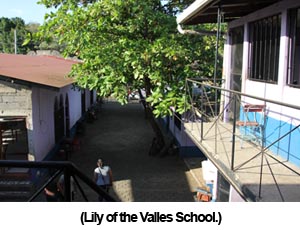 y that question over and over in my mind when I visit yet another private school and the teachers tell me that when students come from public schools and enter seventh and eighth grade and still don’t know how to read or write. It would be understandable if the children were in primary school, but to pass through seven or eight grades without learning, that’s alarming. In fact, much of the developing world, an estimated 793 million illiterate adults struggle with illiteracy.
y that question over and over in my mind when I visit yet another private school and the teachers tell me that when students come from public schools and enter seventh and eighth grade and still don’t know how to read or write. It would be understandable if the children were in primary school, but to pass through seven or eight grades without learning, that’s alarming. In fact, much of the developing world, an estimated 793 million illiterate adults struggle with illiteracy.
Further still, as I have been visiting schools, I have met adults that lack those skills, but what’s amazing to me is that they show a sincere desire to break the cycle of illiteracy when they enroll their own children into a school. But the question remains, how did these adults miss out on education? What happened in their past?
“I couldn’t read or write until I was 16. I just didn’t have the opportunity. No one invested in me.” – Francisco, Director of “Lily of the Valleys Christian School” in Leon, Managua.
Francisco’s school, which was started almost 18 years ago, now serves 450 local children. His school is located in a poorer area of Leon, and meets the needs of many underserved children and families in the local area. Whenever I use the word, “poorer,” keep in mind that Nicaragua is the 2nd poorest country in the Western Hemisphere, so while the “regular” areas are economically harsh, the “poorer” areas are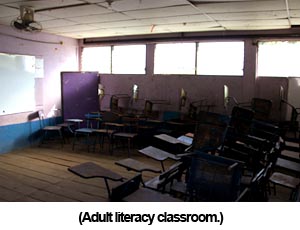 a bit shocking.
a bit shocking.
Francisco’s passion for education came from his inability to receive even basic education as a youth. When he sees a young child enter his school without basic math or language skills, he seems himself as a young man with desires to learn and grow, just waiting to be invested into. I saw Francisco’s passion permeate the school, just look at this to the right, their focus on character formation. They know that if they aren’t the ones who take a stand in the development of a child, no one else will.
After explaining to me how they are able to provide education to over 450 students with only 10 classrooms in three daily sessions, he shares with me something he’s really excited about: free literacy classes on Saturdays for adults.
It had been a goal over the past 20 years. To arrive at a point in his life where he could receive primary and secondary education, and give back to the community that helped him become the man he is today. What’s even more amazing, is that his private school is self-sustainable and with its income it can serve the poor community with a lower tuition rate, pay for the church’s utility bills, and offer free weekend classes to adults. I’m blown away by the entrepreneurship and servant hood he has displayed, but he wants to show me something that means the most to him. As he walks away he says, “Let me show you what we just achieved . . .”
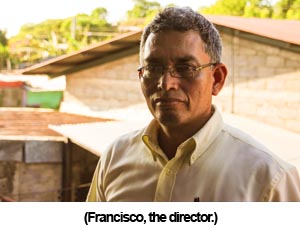 Francisco comes back with a stack of certificates, newly stamped with the seal of approval from the Ministry of Education. His private Christian school is now recognized by the Nicaraguan government as meeting their national standards of literacy training. I’m flipping through the names on these awards and realizing that with each new name I see, this represents a new life for the individual. For a mom or a dad, they now have the ability to help their kids with their homework, find a better job, and read aloud to their kids at night furthering the beautiful bloom of knowledge in their household.
Francisco comes back with a stack of certificates, newly stamped with the seal of approval from the Ministry of Education. His private Christian school is now recognized by the Nicaraguan government as meeting their national standards of literacy training. I’m flipping through the names on these awards and realizing that with each new name I see, this represents a new life for the individual. For a mom or a dad, they now have the ability to help their kids with their homework, find a better job, and read aloud to their kids at night furthering the beautiful bloom of knowledge in their household.
I look up and he is quiet; he’s humbled by all the names and certificates in the folder. He has helped make a way for twenty four adults to become true citizens of their country. I nod in appreciation, he smiles. We both seem to silently agree on the gravity of this achievement.
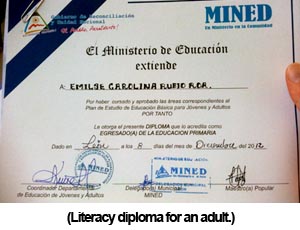 I think it’s because we both realize a simple yet incredibly profound thing has transpired. Even though nobody was there when he was a child, he is present now for the children. Even though no one had the money for him to go to school, he has found a way to provide for others. Even though he and his family lived many kilometers away, they found a house closer to the school to provide weekend classes.
I think it’s because we both realize a simple yet incredibly profound thing has transpired. Even though nobody was there when he was a child, he is present now for the children. Even though no one had the money for him to go to school, he has found a way to provide for others. Even though he and his family lived many kilometers away, they found a house closer to the school to provide weekend classes.
Even though he never had, he made a commitment to give what he never received.
He understood the profound journey he had to take and the cost it took to build a bridge across the deep gap of “even though.”
It hits me hard to think about how many times I think about my first response to a challenge or an obstacle is to give up, simply because something stood in my way, or the gap was too far to cross.
I’m so inspired by the people I’ve met who have overcome tremendous setbacks and have responded not with excuses, bitterness or weakness, but instead a positive, affirming, and courageous attitude. I think about the magnitude of such an obstacle – illiteracy – and what it would take to go from learning to read and write at age 16 and then go to school, university, and on to become a director of a school.
That is simply phenomenal.
One person gives freely, yet gains even more; another withholds unduly, but comes to poverty. A generous person will prosper; whoever refreshes others will be refreshed. (NIV Proverbs 11:24-25)
blessings,
-Aaron
aroth@edify.org
Skype: aprothwm05
Web: www.AaronRoth.net

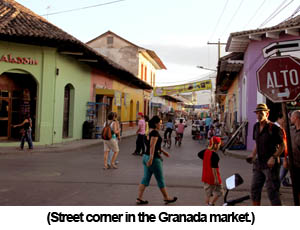 Edify worldwide –
Edify worldwide – 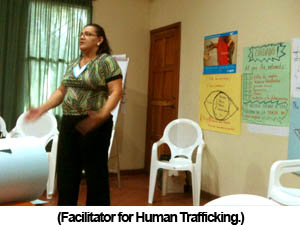 don’t know exactly where this local woman had gotten such a large bill, but I think I can connect the dots in this particular situation. Like in many impoverished countries, with the high frequency of tourism and enormous economic poverty, women sometimes engage in prostitution. I don’t want to give you the impression that this is what Nicaragau is like throughout the country or what it should be known for. That would not be true, nor would it be a fair representation to the beautiful countryside and Nicaraguan culture I have come to enjoy over the past month. Indeed, it is a complicated issue, an economic pressure driven by the divide between the rich who are in power limiting free market commerce from taking shape and the desperate poor waiting for more jobs.
don’t know exactly where this local woman had gotten such a large bill, but I think I can connect the dots in this particular situation. Like in many impoverished countries, with the high frequency of tourism and enormous economic poverty, women sometimes engage in prostitution. I don’t want to give you the impression that this is what Nicaragau is like throughout the country or what it should be known for. That would not be true, nor would it be a fair representation to the beautiful countryside and Nicaraguan culture I have come to enjoy over the past month. Indeed, it is a complicated issue, an economic pressure driven by the divide between the rich who are in power limiting free market commerce from taking shape and the desperate poor waiting for more jobs.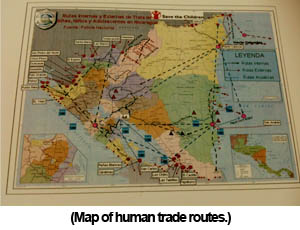 Progress may be slow, but it is arriving.
Progress may be slow, but it is arriving.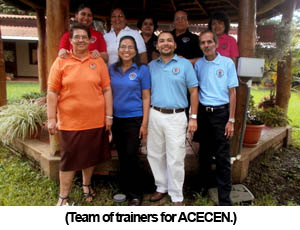 With Edify I have been visiting schools and meeting with organizations like ACECEN to see if they’d be a good partner for Edify as they currently work with Christian schools in Nicaragua. ACECEN “promotes the development and improvement of Christian schools, preparing students to excel professionally based on biblical principles so that they become agents of transformation in society.”
With Edify I have been visiting schools and meeting with organizations like ACECEN to see if they’d be a good partner for Edify as they currently work with Christian schools in Nicaragua. ACECEN “promotes the development and improvement of Christian schools, preparing students to excel professionally based on biblical principles so that they become agents of transformation in society.”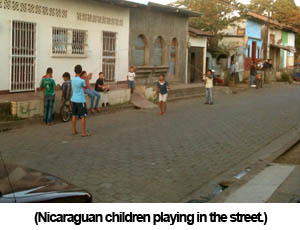
 Aaron Roth – HOPE International – “Feels Like Home” – Dec. 2012
Aaron Roth – HOPE International – “Feels Like Home” – Dec. 2012 Edify worldwide –
Edify worldwide –  On Christmas Day I called my Dominican family on Skype. I lived with them in their small home in a ghetto of Santo Domingo for a short bit when I first arrived to the DR, but had visited them every two or three weeks for the two years I spent in the DR. Talking with them on Skype brought back so many memories of my time in Santo Domingo, and though it had only been two months, it felt like a long time since I had been at home with them.
On Christmas Day I called my Dominican family on Skype. I lived with them in their small home in a ghetto of Santo Domingo for a short bit when I first arrived to the DR, but had visited them every two or three weeks for the two years I spent in the DR. Talking with them on Skype brought back so many memories of my time in Santo Domingo, and though it had only been two months, it felt like a long time since I had been at home with them. It hasn’t bothered me though. When I made the decision three years ago to serve overseas, I knew that I was changing some things that would remain permanent. Having a stable “home” would be a temporary enjoyment and a future plan. What became home to me was a mission, and that’s where I put my focus.
It hasn’t bothered me though. When I made the decision three years ago to serve overseas, I knew that I was changing some things that would remain permanent. Having a stable “home” would be a temporary enjoyment and a future plan. What became home to me was a mission, and that’s where I put my focus. I’ve written many times about my belief in the efficacy and strength of what we do in Edify, and what HOPE International does around the world. We have been helping people develop skills to provide more employment opportunities and income for their families, providing them the financial capital to get started, and sharing the hope of a loving God who believed that to redeem the brokenness of this world was worth sending his beloved Son to this earth. (I think it’s always important to point back to the real meaning of the holidays you know?)
I’ve written many times about my belief in the efficacy and strength of what we do in Edify, and what HOPE International does around the world. We have been helping people develop skills to provide more employment opportunities and income for their families, providing them the financial capital to get started, and sharing the hope of a loving God who believed that to redeem the brokenness of this world was worth sending his beloved Son to this earth. (I think it’s always important to point back to the real meaning of the holidays you know?) d those that I will continue working with this upcoming year.
d those that I will continue working with this upcoming year. Nicaragua my host family showed me the room where I’d be staying. It’s separated from the house, has its own bathroom, and is clean.
Nicaragua my host family showed me the room where I’d be staying. It’s separated from the house, has its own bathroom, and is clean. Edify –
Edify – 
 That memory is full and recent, and I can still taste it.
That memory is full and recent, and I can still taste it.
 when people find a true source of happiness.
when people find a true source of happiness.

















 Blog and Support Page:
Blog and Support Page:  session led by a CPA with 15 years of experience working with small, affordable, private Christian schools. Immediately their faces showed interest and they were expecting the huge price to come next, but I continued on, explaining that with his financial advice, he would walk us through how to prepare an operational budget for the upcoming school year. We’d have coffee, drinks, and sandwiches. Best of all, it would be free.
session led by a CPA with 15 years of experience working with small, affordable, private Christian schools. Immediately their faces showed interest and they were expecting the huge price to come next, but I continued on, explaining that with his financial advice, he would walk us through how to prepare an operational budget for the upcoming school year. We’d have coffee, drinks, and sandwiches. Best of all, it would be free.
 more.” It was a simple recipe: quality material, easy to understand examples, relevant training for school leaders.
more.” It was a simple recipe: quality material, easy to understand examples, relevant training for school leaders. It really makes me think about a key point, through all of my mission work down here: It matters what we believe, it matters what we do, and what we dedicate ourselves to.
It really makes me think about a key point, through all of my mission work down here: It matters what we believe, it matters what we do, and what we dedicate ourselves to. For me, I gave up a lot to be here in the Dominican Republic to serve with HOPE International and Esperanza International. I don’t make a salary here. I have been supported by my church, friends, and family. They believed in what I was doing because I believed in it myself.
For me, I gave up a lot to be here in the Dominican Republic to serve with HOPE International and Esperanza International. I don’t make a salary here. I have been supported by my church, friends, and family. They believed in what I was doing because I believed in it myself.
 astronauts that your youth leaders deemed rugged enough to survive a few test orbit missions from your summer camp launch pad.
astronauts that your youth leaders deemed rugged enough to survive a few test orbit missions from your summer camp launch pad. people a hand up, not a hand out. We make loans to those who live in economic poverty to help them start sustainable businesses to help them improve their economic situation on their own.
people a hand up, not a hand out. We make loans to those who live in economic poverty to help them start sustainable businesses to help them improve their economic situation on their own.
 electricity, and just 2 months ago, they got their first paved road.
electricity, and just 2 months ago, they got their first paved road.


